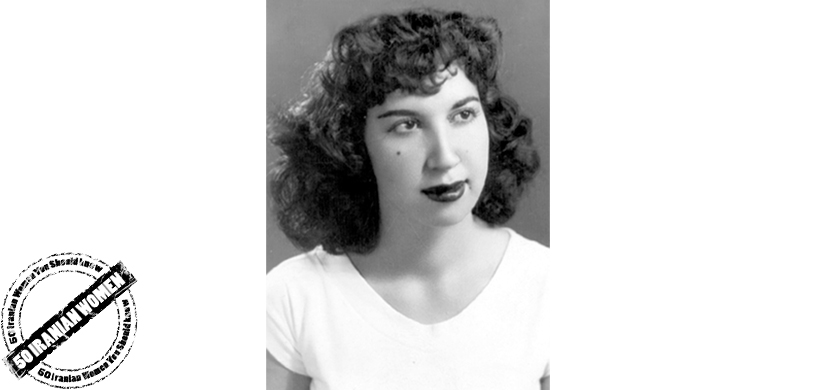Simin Behbahani was a poet, writer, human rights and women rights activist, and a founder of the Iranian Writers' Association, an affiliate of International PEN. She was nominated for the Nobel Prize in Literature twice, in 1999 and 2002. In 2009, Behbahani received the Simone de Beauvoir Prize for Women's Freedom on behalf of women's rights campaigners in Iran.
Among her many admirers, Behbahani, who died in August 2014, was known as the “lioness of Iran.”
The Iranian Writers’ Association started its activities in 1968 under Iran’s Pahlavi dynasty and was the first professional association for writers in Iran. While writers did not have an easy time under the Shah, since the Islamic Revolution of 1979, members of the association have faced harassment, prison, torture, exile and, of course, censorship. Over a 10-year period, from 1988-1998, intellectuals were targeted in a series of extrajudicial killings that became known as “Chain Murders.” Two of the writers’ association members, Mohammad Mokhtari and Mohammad Jafar Pouyandeh, were murdered, and there were attempts on the lives of a number of others.
Simin Behbahani was born in June 1927 to a literary family. Her father, Abbas Khalili, was a poet, writer and newspaper editor. Her mother, Fakhr Ozma Arghun, was a poet and a member of the progressive Association of Patriotic Women between 1925 and 1929.
Behbahani started writing poetry at 12 and published her first collection when she was 14.
In 1958, she began studying law at Tehran University, but after graduation, she preferred teaching over practicing law.
Before the revolution, Behbahani also wrote lyrics for popular Iranian singers, and she sat on the Iranian National Radio and TV’s Music Council. Themes of patriotism, poverty, freedom of expression and women’s rights run through her lyrics and poetry.
In the summer of 1988, when the Islamic Republic executed countless number of political prisoners without returning their bodies to their families or informing them where they were buried, Simin Behbahani published a poem dedicated to the victims’ mothers.
When police forces gunned down a young woman, Neda Agha Soltan, during the protests that followed the disputed 2009 presidential election, Behbahani dedicated a poem in Soltan’s memory: “Dead you are not, dead you will not be/Always you will live, live with eternal life/You embody the people’s call [Neda].”
On March 20, 2011, to mark the Iranian new year, US President Barak Obama issued a message to the people of Iran, quoting Simin Behbahani: “Old, I may be, but, given the chance, I will learn. I will begin a second youth alongside my progeny. I will recite the Hadith of love of country with such fervor as to make each word bear life.” Obama called Behbahani “a woman who has been banned from traveling beyond Iran, even though her words have moved the world.”
Behbahani’s protests were not limited to her poetry. She participated in rallies supporting causes important to her. Once security agents beat her during a protest staged by women in Daneshjou Park. And when women staged a sit-in in front of parliament to protest against legislation that they believed trampled on their rights, she joined them despite her advanced years.
Behbahani received several awards for her activities in support of human rights, including the 1998 Human Rights Watch Hellman-Hammet Grant and the 2006 Norwegian Authors' Union Freedom of Expression Prize.
In March 2010, she planned to travel to Paris for necessary medical treatment and to deliver an address on the occasion of International Women’s Day. As she was about to board the plane for Paris, she was detained and interrogated throughout the night, although she was in her eighties and nearly blind. Her passport was seized and she was banned from traveling abroad.
Behbahani died at the age of 87 on August 19, 2014 after spending 13 days in a coma. Literary figures and many young fans of her poetry attended her funeral, and social media websites were flooded with praise for her and celebration of her work. Official Islamic Republic radio and television did not even report her death, which was not unexpected, given that she was not a favorite of the Islamic Republic regime, especially among hardliners. Jahan News, a hardline Iranian website, once characterized Behbahani’s writing as treasonous: “Her poetry, with its slanderous and scandalous way of addressing Iranians, only serves to make Iran’s enemies happy.”

But as long as she was alive, Behbahani did not stop defending the undefended and standing up against injustice.
For millions of Iranians inside the country and abroad, Simin Behbahani was the “eloquent voice of conscience,” according to Farzaneh Milani, a scholar of Persian literature at the University of Virginia. “She was the elegant voice of dissent, of conscience, of non-violence, of the refusal to be ideological.”
Realated articles:
A Poet Who Stayed, A Nation’s Conscience
To read more stories like this, sign up to our weekly email.
visit the accountability section
In this section of Iran Wire, you can contact the officials and launch your campaign for various problems




























comments